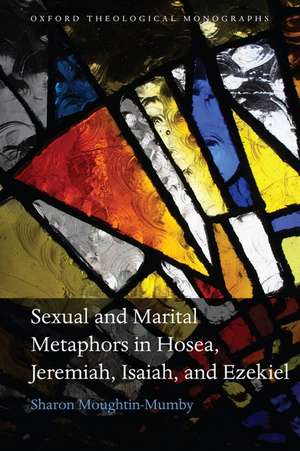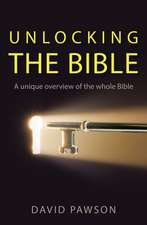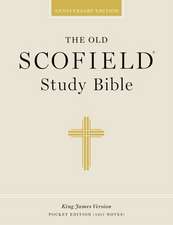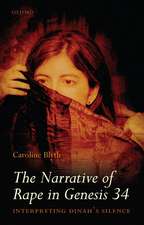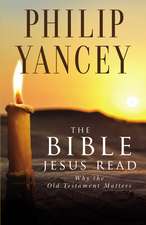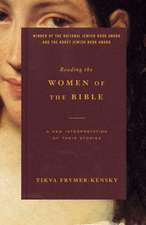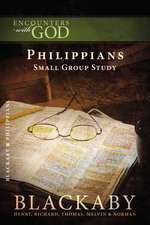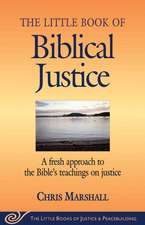Sexual and Marital Metaphors in Hosea, Jeremiah, Isaiah, and Ezekiel: Oxford Theological Monographs
Autor Sharon Moughtin-Mumbyen Limba Engleză Hardback – 5 iun 2008
Din seria Oxford Theological Monographs
- 34%
 Preț: 1007.04 lei
Preț: 1007.04 lei - 30%
 Preț: 589.19 lei
Preț: 589.19 lei - 50%
 Preț: 731.43 lei
Preț: 731.43 lei - 34%
 Preț: 861.71 lei
Preț: 861.71 lei - 34%
 Preț: 1124.04 lei
Preț: 1124.04 lei - 50%
 Preț: 904.45 lei
Preț: 904.45 lei - 34%
 Preț: 1034.50 lei
Preț: 1034.50 lei - 34%
 Preț: 1214.92 lei
Preț: 1214.92 lei - 34%
 Preț: 1108.59 lei
Preț: 1108.59 lei - 34%
 Preț: 1008.01 lei
Preț: 1008.01 lei - 31%
 Preț: 830.53 lei
Preț: 830.53 lei - 30%
 Preț: 592.17 lei
Preț: 592.17 lei - 31%
 Preț: 1055.67 lei
Preț: 1055.67 lei - 51%
 Preț: 888.07 lei
Preț: 888.07 lei - 51%
 Preț: 1009.65 lei
Preț: 1009.65 lei - 34%
 Preț: 1110.14 lei
Preț: 1110.14 lei - 31%
 Preț: 1433.85 lei
Preț: 1433.85 lei - 34%
 Preț: 1346.50 lei
Preț: 1346.50 lei - 30%
 Preț: 615.90 lei
Preț: 615.90 lei - 34%
 Preț: 1121.56 lei
Preț: 1121.56 lei - 34%
 Preț: 1122.53 lei
Preț: 1122.53 lei - 34%
 Preț: 1534.02 lei
Preț: 1534.02 lei - 34%
 Preț: 1006.30 lei
Preț: 1006.30 lei - 34%
 Preț: 1243.05 lei
Preț: 1243.05 lei - 34%
 Preț: 1124.01 lei
Preț: 1124.01 lei - 30%
 Preț: 745.79 lei
Preț: 745.79 lei - 18%
 Preț: 323.22 lei
Preț: 323.22 lei - 34%
 Preț: 876.33 lei
Preț: 876.33 lei - 34%
 Preț: 1197.45 lei
Preț: 1197.45 lei - 50%
 Preț: 612.09 lei
Preț: 612.09 lei - 30%
 Preț: 922.53 lei
Preț: 922.53 lei - 34%
 Preț: 860.41 lei
Preț: 860.41 lei - 34%
 Preț: 1182.15 lei
Preț: 1182.15 lei - 34%
 Preț: 860.59 lei
Preț: 860.59 lei - 34%
 Preț: 859.44 lei
Preț: 859.44 lei - 30%
 Preț: 1344.27 lei
Preț: 1344.27 lei - 19%
 Preț: 333.62 lei
Preț: 333.62 lei - 31%
 Preț: 1053.48 lei
Preț: 1053.48 lei - 22%
 Preț: 527.72 lei
Preț: 527.72 lei - 34%
 Preț: 1007.84 lei
Preț: 1007.84 lei - 27%
 Preț: 377.18 lei
Preț: 377.18 lei - 34%
 Preț: 1196.80 lei
Preț: 1196.80 lei - 30%
 Preț: 729.47 lei
Preț: 729.47 lei - 28%
 Preț: 405.92 lei
Preț: 405.92 lei - 34%
 Preț: 1007.00 lei
Preț: 1007.00 lei - 34%
 Preț: 1079.73 lei
Preț: 1079.73 lei - 28%
 Preț: 448.56 lei
Preț: 448.56 lei
Preț: 790.64 lei
Preț vechi: 1135.48 lei
-30% Nou
Puncte Express: 1186
Preț estimativ în valută:
151.31€ • 157.38$ • 124.91£
151.31€ • 157.38$ • 124.91£
Carte tipărită la comandă
Livrare economică 04-10 aprilie
Preluare comenzi: 021 569.72.76
Specificații
ISBN-13: 9780199239085
ISBN-10: 0199239088
Pagini: 330
Dimensiuni: 164 x 241 x 24 mm
Greutate: 0.65 kg
Editura: OUP OXFORD
Colecția OUP Oxford
Seria Oxford Theological Monographs
Locul publicării:Oxford, United Kingdom
ISBN-10: 0199239088
Pagini: 330
Dimensiuni: 164 x 241 x 24 mm
Greutate: 0.65 kg
Editura: OUP OXFORD
Colecția OUP Oxford
Seria Oxford Theological Monographs
Locul publicării:Oxford, United Kingdom
Recenzii
Stimulating monograph... The work certainly succeeds in demonstrating 'the sheer variety and innovation of the prophetic sexual and marital metaphorical language'(p.48) and argues convincingly for the importance of reading such passages without the straightjacket which has often been imposed upon them.
offers important lessons for students seeking to understand the complexity and diversity behind the prophetic sexual metaphor. The discerning reader will come away with a fuller understanding
Moughtin-Mumby establishes herself as a cooperative reader of some scurilous biblical texts, and shows how, in the face of their appalling misogyny and sexual violence, an honest reading can lead to their deconstruction and even be a source of hope.
Moughtin-Mumby's study provides a valuable rereading of several disconcerting prophetic texts, is replete with attentive and worthwhile observations, and should be considered a volume worthy of much contemplation in future investigations into the sexual and marital metaphorical language of the prophetic books.
offers important lessons for students seeking to understand the complexity and diversity behind the prophetic sexual metaphor. The discerning reader will come away with a fuller understanding
Moughtin-Mumby establishes herself as a cooperative reader of some scurilous biblical texts, and shows how, in the face of their appalling misogyny and sexual violence, an honest reading can lead to their deconstruction and even be a source of hope.
Moughtin-Mumby's study provides a valuable rereading of several disconcerting prophetic texts, is replete with attentive and worthwhile observations, and should be considered a volume worthy of much contemplation in future investigations into the sexual and marital metaphorical language of the prophetic books.
